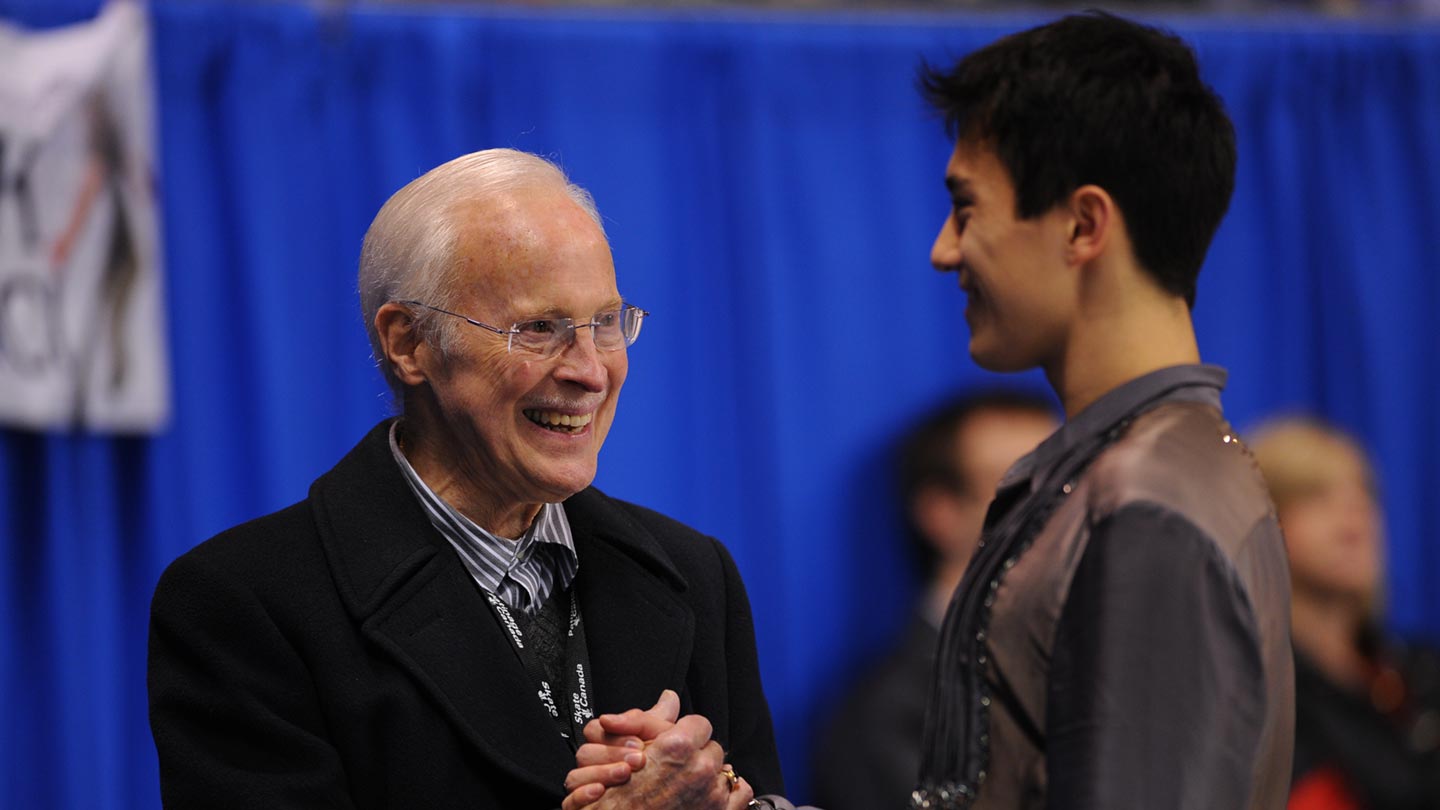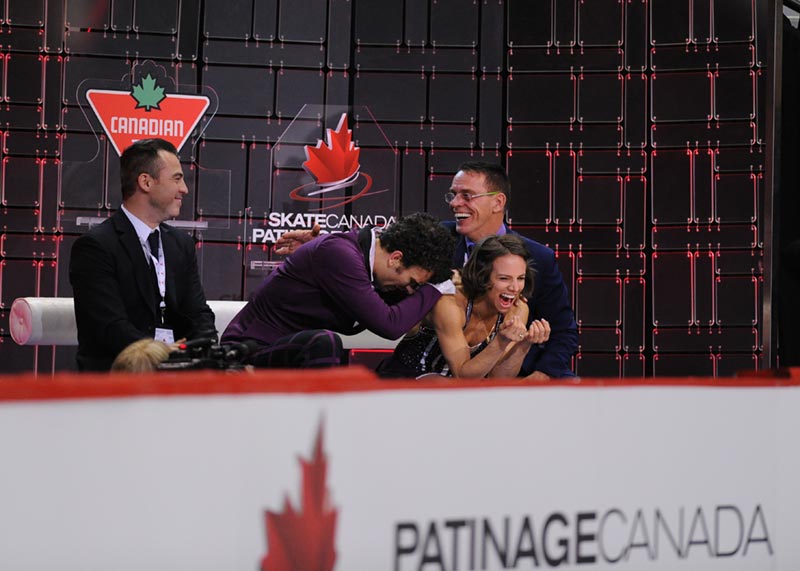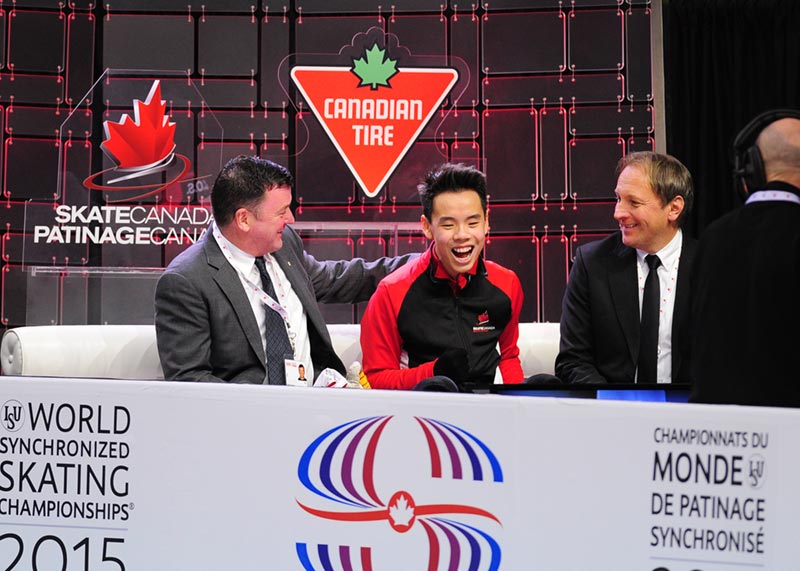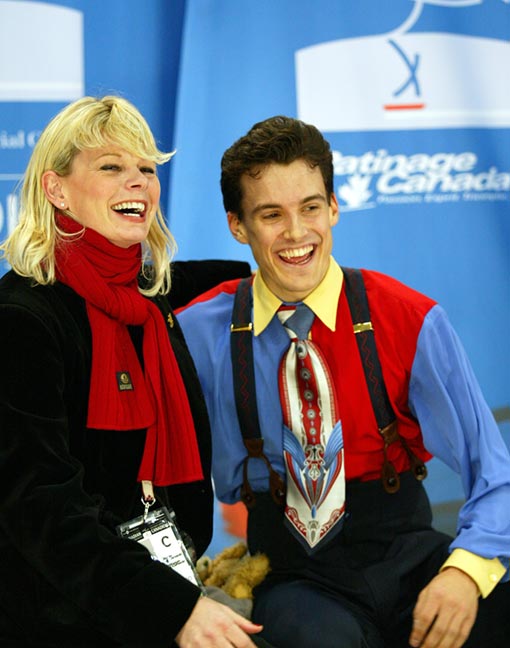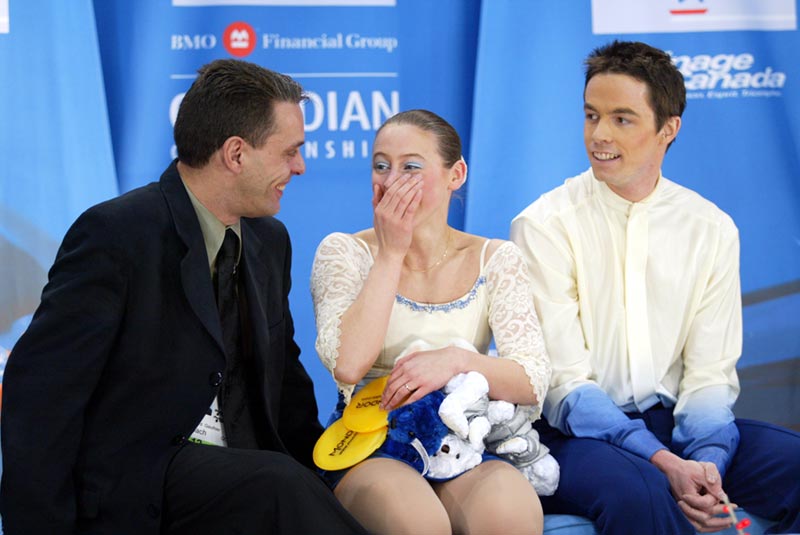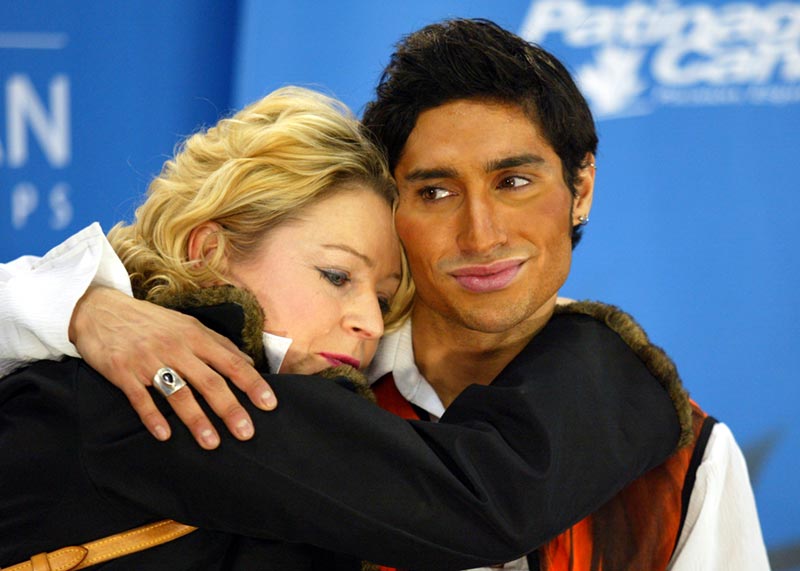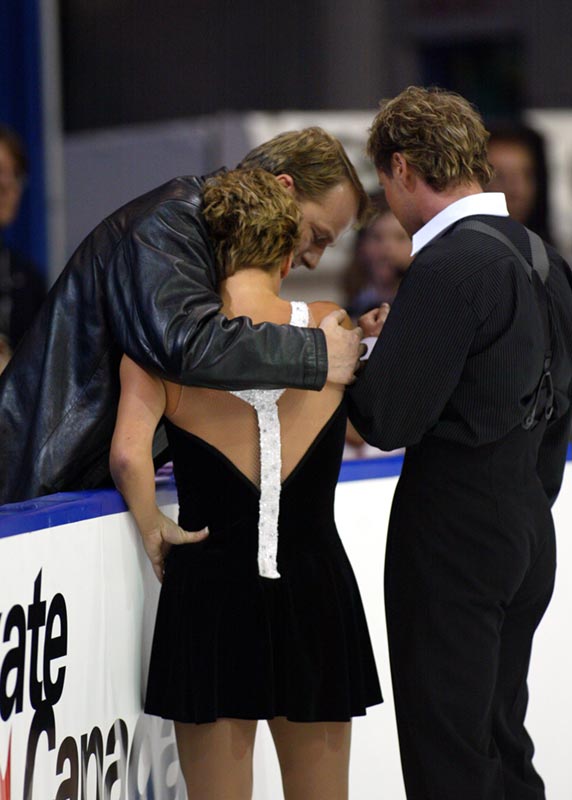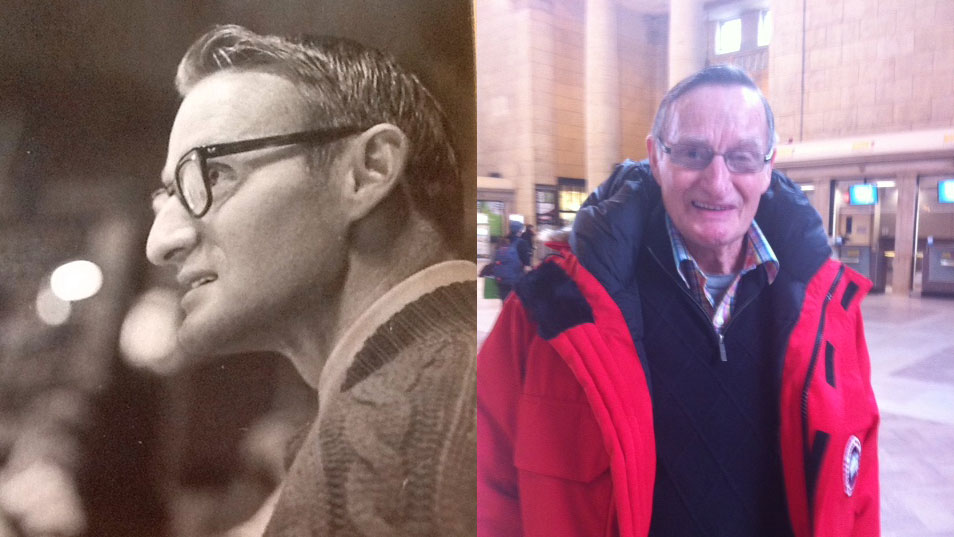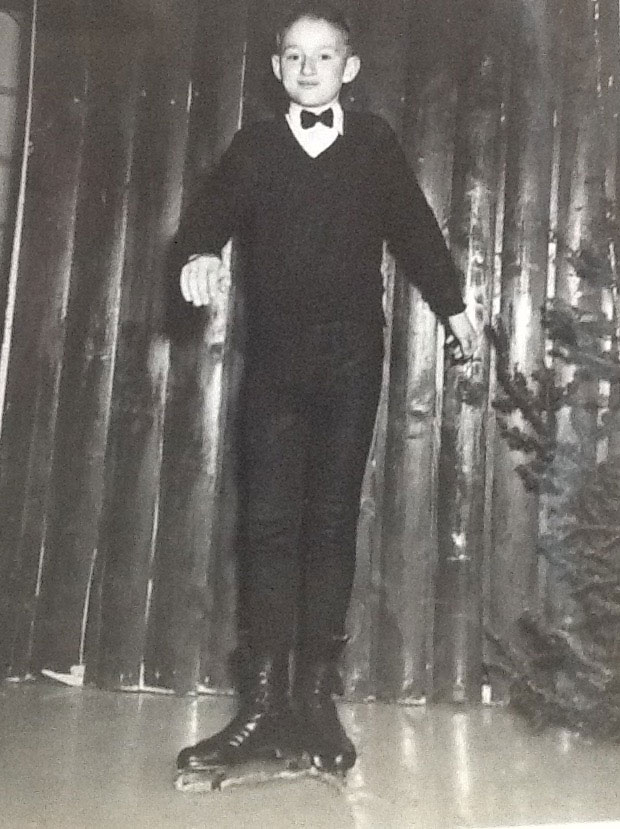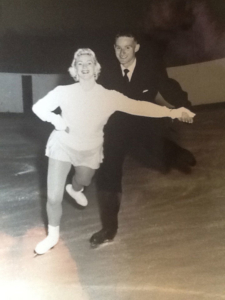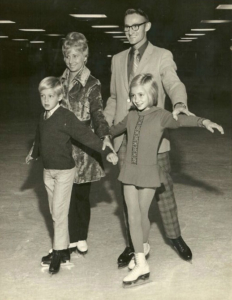Posts
Still Coaching after 60 years!
/0 Comments/in Featured Stories /by Skate CanadaIt began as a way for a sickly child to get exercise but eventually turned into a life-long love affair with skating.
In the mid-1940s, Paul Tatton was 10 when he began skating at the North Bay Figure Skating Club. “I had been in bed with Pleurisy for over a year so naturally I wasn’t able to take part in active sports. Somehow I managed to pass my Preliminary Figure Test during my second season … and with that my love for skating was born.”
His efforts in his first ice show never indicated the kind of career that lay ahead. “While Sonya Henie was the star of the show, I was a frog along with two other young boys. We were skating on natural ice in an inch of slush and carried on so much that when we took off our costumes, we were green all over – the dye didn’t come off for a week!”
From the beginning, it was a family commitment, his parents volunteering for every job at the club, his mom eventually becoming a gold test judge. “After my second year’, says Paul, “my father drove me all the way to Toronto to get a half hour lesson with Coach Gerry Blair. At the end of the lesson he told me that I could be as good as I wanted — he could show me what to do but the rest was up to me.”
When Paul arrived back in North Bay he informed his parents that he had to live away from home to get skating time. His parents agreed and the next day drove him to Copper Cliff, west of Sudbury, got him a room, arranged for meals at a boarding house and enrolled him in the Copper Cliff Skating Club. “I was 13 years old”, tells Paul, “and got up at 4am every morning, walked to get breakfast, then to the rink and skated from 5am to 8.30, then off to school. I trained there with Mr. Blair on weekends and practiced on my own during the week.”
Paul admits that Gerry Blair took him under his wing and insured he had the things he needed to improve. “I had trouble with skating boots breaking down so Mr. Blair took me to see a friend of his, John Knebli. John made shoes for handicapped people. When shown my skates his immediate reply was ‘I CAN DO BETTER THAN THAT’! He took me back to his shop, measured my flat feet … and two weeks later I had the very first skating boots Mr. Knebli ever made. The rest is history.”
Under the guidance of Gerry Blair and later Sheldon Galbraith, Paul competed all the way to third place at Senior Canadians in 1954, finishing his free program despite experiencing an asthma attack part way through the performance. Returning home to skate in the official opening of North Bay Memorial Gardens, he knew his competitive career was at a turning point. Money was tight and with strict rules regarding amateur status, Paul felt he was almost forced to turn professional.
“Arena manager Morris Snyder asked me to run a Spring School for him. He thought I might have a good turnout and of course, loving a challenge, I wanted to see if I could do it. It turned out to be a success with all high tests passing.”
That started Paul on his life’s work. “The transition to coaching was easy … I’m a tremendous planner … and not just in skating.” Whether it was learning to fly and getting his certification after one month, being scouted by the Chicago Blackhawks of the NHL or receiving a scholarship to develop his high tenor operatic voice in Italy, whatever Paul set his sights on, he did with determination.
Thankfully Paul’s dedication to coaching skating won out.
He worked in the US, most notably in Hershey, Pennsylvania, at Miami University in Oxford, Ohio as the Director of Skating and finally back in Canada in 1976 after which he started his own school in Sundridge, Ontario. “Today I work for Riverside Skating Club, Windsor Skating Club and La Salle Skating Club in Western Ontario.”
Wherever Paul landed, he discovered it was the science of skating that kept him challenged, particularly during school figures. “I loved to see what happened if I turned my head one way, not the other. I still love doing skating research and then seeing the effects … it’s fascinating … I never get bored.”
He’s sad figures are gone. “Figures taught you to concentrate. Learning quality turns, body control and the tracing of a perfect edge was a real art form. It was the great divider; today it’s often just acrobatics.”
One of Paul’s former students, Jen Jackson, now a coaching colleague, recalls her early days under Paul’s tutelage. “I have known Paul since 1987 when I first moved to Windsor and was looking for a coach to help me finish my gold tests. I chose him because when I came into the rink to watch, even though he wasn’t teaching the best skater on the ice, he gave her a lesson filled with enthusiasm. I could see his passion for the sport … and he never watched the clock.”
Paul admits his priority has always been to instill confidence in the skaters he teaches. “I like to think that with each lesson I’ve accomplished something that will help them. You learn a lot about yourself in skating. You learn to face challenges that will benefit you for life. My coaches sure gave me confidence and for that I am grateful. Now it’s my job to pass that confidence on.”
In many ways, Jen has followed Paul’s teaching model. “When I began coaching, Paul was so generous and had me work with all his skaters. Now that he’s getting older, he’s stepping back, letting others take more leadership so he can work on specific areas with the skaters. He loves teaching turns and has become the Spin Doctor. The kids just love him. He always has a kind word or a story about the good old days and how each skater reminds him of someone wonderful he used to teach.”
Getting older has meant facing other challenges for Paul. Two years ago he had shoulder surgery and also broke his back, injuries which kept him off the ice for months.
As Jen says, it may have kept him out of the rink, but it did not curtail his enthusiasm. “When I would go to visit him, all he could talk about was how the kids were doing. He never complained about his situation and instead just kept telling me that he couldn’t wait to get back and hopefully by then he was still needed.”
Paul admits, “I’m proudest of the moments when I’ve helped kids do something they didn’t think they could do.”
Teaching from the boards, although Paul doesn’t put his skates on these days, he is as enthusiastic and involved as ever, this week attending the Annual General Meeting of Skate Canada Western Ontario and celebrating his 60th year of coaching.
Congratulations Paul!
Meet Coaches Extraordinaire: Karen and Jason Mongrain
/0 Comments/in News & Press Releases /by Skate CanadaBy Debbi Wilkes
Skating Coaches Karen and Jason Mongrain are nervous.
It’s not because their students are competing at Sectionals next week or because of the demands their community and rink are facing this week at Skate Canada International in Kelowna, BC. As top-notch figure skating coaches with some 40 years of combined experience, this husband and wife coaching team is accustomed to that kind of stress.
What makes them worried this week is the fact that for Sunday’s Exhibition Gala they have to design and teach close to six minutes of choreography to over twenty international skating stars, most of whom they have never met, many of whom do not speak English … and there is only ONE 45-minute rehearsal Sunday morning at Prospera Place in which to make it happen.
Sounds like a nightmare.
When Skate Canada called to ask them if they’d take the job, they instantly knew it would be a tough assignment but they also knew it was a rare opportunity that a coach may have only once in a lifetime. The chance to work with this elite level of skater, regardless of the situation, would be considered a coach’s dream. They agreed to the challenge despite the fact that this time of year is one of their busiest, with competitions and training at their most frantic pace.
So what’s the plan?
Key to the success of the number will be selecting great music. Karen and Jason have decided to use what they describe as “cheesy, 80’s hard rock”, made up of super-popular, positive and energetic music.
Keeping their choreography simple and showcasing individuals will also help build a great number. Between now and that first step on the rehearsal ice Sunday morning, Karen and Jason will do some additional research on-line to get to know the performers’ individual skills a bit better and to look for any special tricks that will help make the number original. They’ll also encourage skaters to come up with a few of their own unique ideas to add to the choreography and give it some extra sizzle.
The team is well aware that after a week of competition and the stress that goes along with performing, the skaters want to break loose, show their personalities and have some fun. They’ll be counting on those motivators to engage the athletes who are an eager bunch and easy to inspire with new ideas.
Logistics will come into play once the teaching process begins. The skaters will be spilt up into teams, likely playing the girls against the boys. And as always, the music will dictate exactly who goes where, does what and when.
Six minutes is a massive amount of choreography but, despite their nervousness, Karen and Jason will use their considerable experience to get the job done to create a finale hit which is memorable and fun for both the skaters and the fans. And the Mongrains have come to this challenge with the same kind of dedication, enthusiasm and energy that have been the trademarks of their successful coaching careers.
Jason admits it was just pure luck that got him into coaching. As a skater, he didn’t have any desire to coach … it seemed like a very stressful job! He’d just completed his second year of college and was unsure where he wanted to head when he received a phone call out of the blue from a club in the tiny remote village of Nakusp, BC, asking if he’d be interested in coaching their 60 members, over half of which were at the CanSkate level. Recognizing it would be a fascinating experience, Jason thought it would also give him time to make some decisions regarding his future. But once he started, he was surprised to realize just how rewarding coaching could be, and after the first season, he knew he was hooked!
On the other hand, Karen, his wife and coaching partner, always knew she wanted to be a coach. She was twenty-five or so the day she found a time capsule from her own Grade 5 school project. In it was a Q & A page that asked what she wanted to be when she grew up. Her answer? “Skating coach!”
Karen also started in a small community, Grand Forks, BC, and like Jason, counts herself fortunate to have begun her career in a small town where she learned to value different perspectives and was forced to develop her craft with limited resources.
Looking back, some of the couple’s happiest moments teaching have been seeing little kids having a blast on the ice. Watching children have fun on skates and being eager to learn are the qualities they notice most in skaters that become lifelong participants in the sport. Karen and Jason teach a lot of competitive skaters … and there is often high pressure involved … but at the end of the day, both coaches attempt to create an experience that’s still full of fun and adventure, one that will help build a desire to remain involved with the sport in some way after their competitive careers end.
“Nothing is more satisfying than coaching a skater from CanSkate all the way to the end of a long and productive career,” says Karen. “We will often get visits from our past skaters, updating us with their current lives … this is something we both cherish!”
Both partners find that coaching is a great competitive and creative outlet and are particularly proud of the amazing accomplishments of their skaters in Kelowna. In recent years the club has produced a good number of podium finishes at nationals up to the junior level, a special achievement for their club, thanks in part to the support and commitment of the club’s amazing volunteers.
“I love coaching and developing skaters,” adds Jason, “but I think the most important contribution I make is in working with young coaches. This has a greater impact on more skaters and on future generations. I’m also very proud to be part of a team with our club volunteers … a team that is raising the profile and value of figure skating in our city.”
Karen and Jason feel skating is a great life skill. The patience required to learn at all levels, to cope with fear, challenge creativity, fulfill fitness needs, deal with the ups and downs in both practice and performance, and most importantly, to persevere … are all skills to be transferred to life.
Skate Canada
261 – 1200 St. Laurent Blvd.
Box 15
Ottawa, ON.
K1K 3B8
Phone: 613.747.1007
Toll Free: 1.888.747.2372
Fax: 613.748.5718
E-mail: [email protected]

